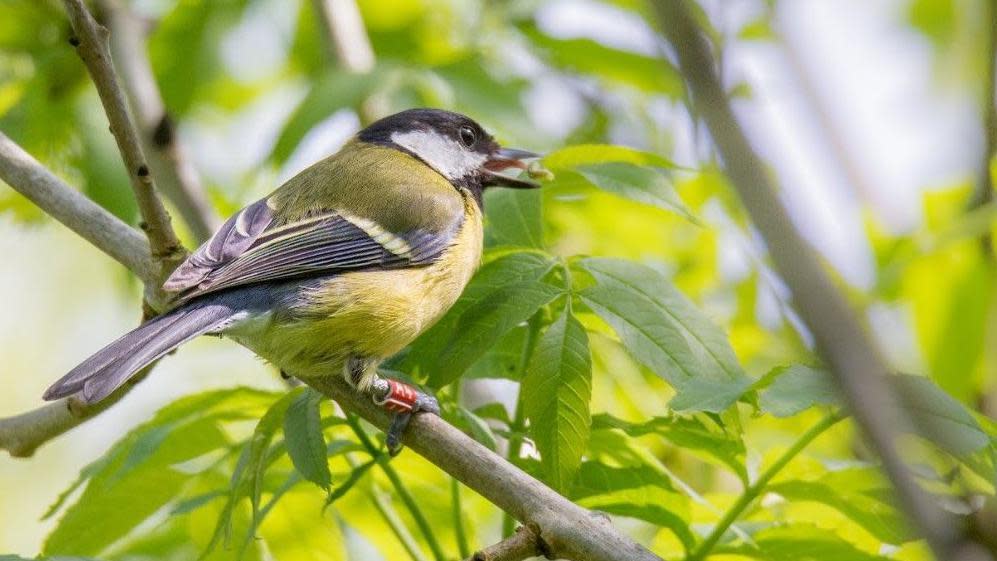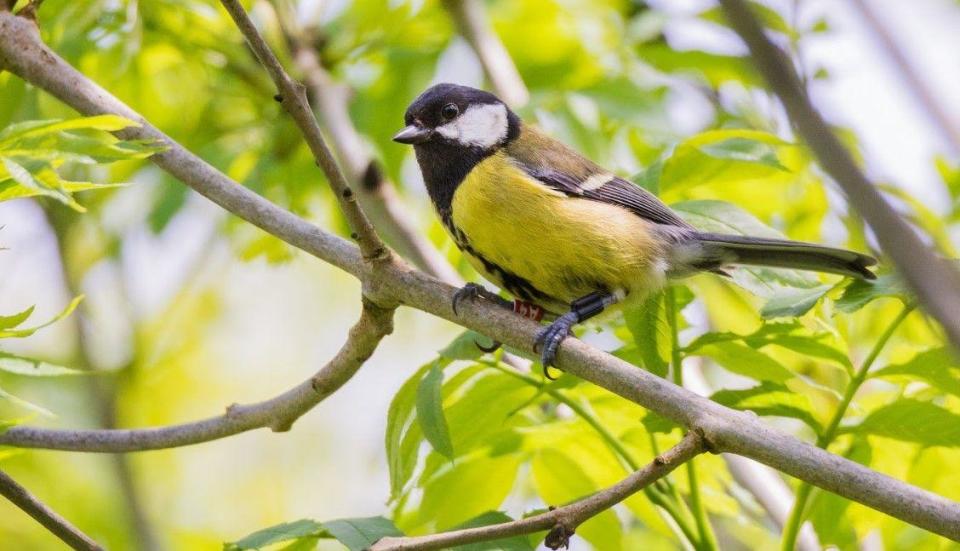Wild birds 'remember' where and when they find food

Small wild birds have demonstrated an ability to recall what they have eaten in the past, where they found it and when, a new study has shown.
Researchers at the University of Cambridge and the University of East Anglia in Norwich (UEA) studied the feeding habits of blue tits and great tits.
In the "first experiment of its kind to involve wild animals", the birds exhibited an "episodic-like" memory to cope with changes in food availability when foraging.
That memory system - a "conscious recollection of personally experienced events" was previously thought to be "uniquely human", researchers said.
The study involved 94 wild blue and great tits in a series of memory tasks.
Blue tits and great tits are "opportunistic foragers" which could benefit from being able to recall ecological details from a single experience as this would permit flexible decision-making, the study said.
Researchers installed automated food containers and a software program that "created unique experiences for individual birds, and tracked each bird’s behaviour after they formed a memory".

The birds were fitted with radio frequency tracking tags on their legs so that when they landed on the feeder’s special perch, this read their tag, and food was released - or not released - through an electronic door, "according to experimental rules with unique timed events specific to each individual bird".
'More intelligent'
Feeders were loaded with sunflower seeds, which the birds prefer - and peanut pieces – a food less favoured, both of which ran out and were replenished at different rates.
"All else being equal, birds prefer to eat sunflower hearts over peanuts," said the UEA's Dr Gabrielle Davidson.
"But once a bird starts to eat them, they become unavailable two hours later.
"Our experiments show that when birds come back to the feeders more than two hours later, they automatically go to where the peanuts are, even though it's not their favourite food, because they remember their previous experience."
The study concluded that after the preferred sunflower seed feeders stopped serving, the birds remembered this would be the case and so switched to the less preferred peanut feeders, which they remembered would still be serving food in that period of time.
James Davies, from the University of Cambridge’s Comparative Cognition Lab, said: "These findings provide the first evidence for episodic-like memory in the wild and show that blue and great tits have a more flexible memory system than we used to assume.
"Previous studies on episodic-like memory have involved bigger-brained bird species, corvids, which hide food. This study focuses on smaller-brained more generalist birds that don’t hide their food.
"Our findings suggest these birds are more intelligent than they’ve been given credit for."
Dr Davidson added: "The birds were behaving naturally in a familiar environment, so we captured something more realistic than if the birds had been captive."
The study also might suggest that humans leaving out food for garden birds could be one factor contributing to the evolution of these memory traits, in the same way that birds have evolved beak adaptations in response to increased reliance on garden feeders, researchers said.
Follow Cambridgeshire news on Facebook, Instagram and X. Got a story? Email eastofenglandnews@bbc.co.uk or WhatsApp us on 0800 169 1830


